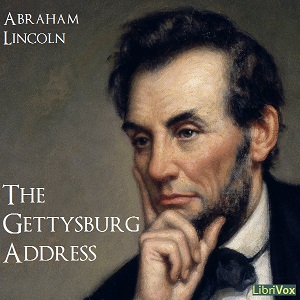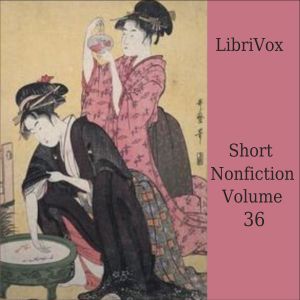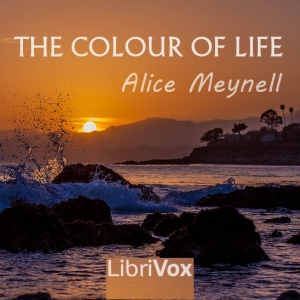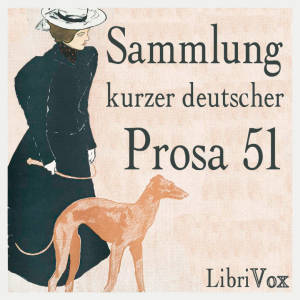Fifteen short nonfiction works in the public domain, independently chosen by the readers. Topics include the Faust Legend, Stephen Crane, Sundials and the Statue of Liberty. (Summary by Sue Anderson)
15 episodes
A selection of poems, short stories and other prose for the Christmas season in English, Finnish and German.
27 episodes
A collection of 13 essays written between 1900 and 1908, published in 1910. The lead essay, "Revolution", outlines how and why London renounced capitalism as a failed social system and declared himself an active participant in the "socialist revolution", the last essay is an autobiographical piece, and the essays in between are on diverse subjects. A few of the “essays” are actually humorous short fiction stories; others are serious, sometimes angry rants against capitalistic greed and political corruption. All of the pieces are thought-provoking and excellently written, though only loosely intellectual, highly opinionated, and rife with contradiction, as was London himself. -- Summary by Michele Fry
14 episodes
Diese Sammlung umfasst 15 deutschsprachige Prosa-Texte verschiedener Genres.
Eine Liste weiterer kurzer Aufnahmen (Erzählungen, Gedichte, Märchen, Essays) in anderen LibriVox Sammlungen gibt es hier.
Gram von Anton Chekhov übersetzt von Alexander Eliasberg
Staatsgeheimnisse von Matthias McDonnell Bodkin übersetzt von Margarete Jacobi
[Ringparabel] von Giovanni Boccaccio übersetzt von Karl Witte
15 episodes
On Thursday, November 19, 1863, Abraham Lincoln gave a brief address at the dedication of the Soldier's National Cemetery in Gettysburg, Pennsylvania. This speech is now considered one of the greatest in American history and one of the finest examples of English public oratory. To mark its 150th anniversary, Librivox volunteers bring you 15 recordings of the Gettysburg Address. (from Wikipedia and LA Walden)
15 episodes
Even before the Great War turned the world upside down, Western civilization was being revolutionized at all levels: intellectually, philosophically, artistically. Noted positivist philosopher George Santayana published this volume on the eve of the War, trying to portray the status of philosophy and theology at that moment by analyzing six significant topics: 1. the intellectual "temper" of the age 2. the clash between Modernism and Christianity 3. the new idealism of Henri Bergson 4. the new skepticism of Bertrand Russell 5. Shelley's fusion of philosophy and poetry 6. the so-called "genteel" tradition in American philosophy. - Summary by Expatriate
14 episodes
In an introductory paragraph, Lafcadio Hearn declares his intention: "The papers composing this volume treat of the inner rather than of the outer life of Japan, for which reason they have been grouped under the title Kokoro (heart). Written with the above character, this word signifies also mind, in the emotional sense; spirit; courage; resolve; sentiment; affection; and inner meaning, just as we say in English, "the heart of things."" The result is a highly eclectic collection of stories, diary entries, cultural essays, and collected traditional texts that illustrate not only the state of Japanese society in the 1890s but also the endlessly fascinating issue of the intersection of cultures as demonstrated in a Westerner's interpretations of what he observed in Japan. As much is revealed about the Western mind as the Japanese mind whenever such an intersection occurs. - Summary by Expatriate
25 episodes
Col. Robert G. Ingersoll, one of the greatest orators of the mid-19th century, was a highly sought after lecturer/toastmaster who sold out every hall he engaged throughout America. He was an ardent abolitionist, agnostic, humanist, humanitarian, supporter of the arts, and woman's rights, and member of the Unitarian Church, who railed against the absurdities of the Bible and cruelties of Christianity, praised technology, inventors, authors and great statemen for their contributions to the uplift of mankind. Mark Twain, a contemporary of Ingersoll, reported that no one could stir up a crowd like Ingersoll, and that by the end of the Colonel's toast at General Grant's Victory Banquet after the Civil War, everyone was standing on chairs and tables stomping, cheering, crying and madly waving their napkins. ( Summary by Michele Fry)
16 episodes

This is a collection of short pieces, poetry or prose, fiction and non-fiction, in several different languages (except standard English). All chosen and recorded by Librivox volunteers.
01 Russian - Послушайте! (Poslushayte!) (poetry, non-fiction, звезда, послушайте, Mаяковский, простое как мычание, кричу кирпичу)
02 Russian - Ночь, улица, фонарь, аптека (Noch', ulitsa, fonar', apteka) (poetry, non-fiction, пляски смерти, Блок)
03 Russian - Ничего не понимают. (Nichego ne ponimayut.) (poetry, non-fiction, причешите, уши, Mаяковский, простое как мычание, кричу кирпичу)
04 Finnish - Kevätkylmät (prose)
05 Finnish - Kevät ja kesä (prose)
06 Polish - Biały wyrak (kominiarz, legenda, praca, groza, horror, opowiadanie, potwór)
07 French - Jeannot et Colin (prose, fiction , conte philosophique, conte moral, conte satirique, critique sociale, XVIIIème siècle, siècle des Lumières)
08 Polish - Zemsta żywiołaków (pożar, praca, groza, horror, opowiadanie, demon)
09 Polish - Czerwona Magda (pożar, praca, groza, horror, opowiadanie, demon)
10 Polish - Zez (groza, horror, opowiadanie, opętanie)
11 Russian - Муравей и голубка (Muravey i Golubka) (prose, fables, Tolstoy, для детей, басни, Толстой)
12 Russian - Черепаха и Орел (Cherepaha i Orel) (prose, fables, Tolstoy, для детей, басни, Толстой)
13 Russian - Два товарища (Dva Tovarisha) (prose, fables, Tolstoy, для детей, басни, Толстой)
14 Russian - Хорек (Horek) (prose, fables, Tolstoy, для детей, басни, Толстой)
15 Spanish - Lo fatal (poetry, modernism, modernismo, poesía, Nicaragua)
16 Spanish - Si ves un monte de espumas (poetry, poesía, Cuba, Versos sencillos)
17 Russian - Альбом (Albom) (prose, Chekhov, Чехов, рассказы, юмор)
18 Russian - Авиатор (Aviator) (poetry, Блок)
19 Russian - И я любил. И я изведал... (I ya lyubil. I ya izvedal) (poetry, Блок)
20 Ukrainian - Заповіт «Як умру то поховайте» (Zapovit) (poetry, Шевченко, вірш, кобзар)
20 episodes
Eighteen short nonfiction works in the public domain, independently chosen by the readers. Topics include astronomy, religion, United States history, football, child raising, Tokyo firebombing, and more. (summary by Sue Anderson)
18 episodes
Eighteen short nonfiction works in the public domain, independently chosen by the readers. Topics include the English countryside; William Randolph Hearst and journalism; the philosophy of Soren Kierkegaard, John Dewey and others; General William T. Sherman's voyage to San Francisco; the metric system, and the future of the machine age. (Summary by Sue Anderson)
Bjornson's "Beyond Human Power" and Kierkegaard's "What Says the Fire Marshal?" were both translated by Lee Milton HollanderThe translators of Philemon's "The Highest Good" and Lessing's "On Love of Truth" are unknown.
18 episodes
On 15th June 1215 the Magna Carta was sealed under oath by King John at Runnymede, on the bank of the River Thames near Windsor, England. 2015 is the 800th anniversary of this charter, which led eventually to the rule of constitutional law in England and beyond. This book of essays on various aspects of the Charter was written by distinguished academics for the Royal Historical Society to commemorate the 700th anniversary of Magna Carta. N. B. The readers in this project are not scholars of mediaeval Latin or French. Where there are passages or phrases of Latin and Old French, we have endeavoured to make them clear, but make no claim to authentic pronunciation. (Summary by Ruth Golding)
19 episodes

In January 1909 a friend of the Scientific American paid the sum of 500$ which was to be awarded as a prize for the best popular explanation of the Fourth Dimension. The object being to set forth in an essay not longer than 2500 words the meaning of the term so that the lay reader could understand it. 245 essays were submitted, the 500$ prize was awarded to Lieut.-Col. Graham Denby Fitch, Corps of Engineers, USA, and the essay was published in the Scientific American of July 3rd 1909.
Despite the character of the subject, extraordinary interest was manifested in the contest. Competitive essays were received from almost every civilized country. Because of this unexpected interest in the subject, it has seemed advisable to preserve a few of the essays which were submitted. Prof. Henry P. Manning (Brown Univ.) has chosen essays which lend themselves best for the purpose of a popular book on the Fourth Dimension, in other words, those which present the subject from as many different points of view as possible.
This book contains 22 of the submitted essays, starting with the prizewinning one, followed by three that received an honorable mention. (Summary adapted from the preface by Availle).
25 episodes
Diese Sammlung umfasst 15 deutschsprachige Prosa-Texte verschiedener Genres.
Eine Liste weiterer kurzer Aufnahmen (Erzählungen, Gedichte, Märchen, Essays) in anderen LibriVox Sammlungen gibt es hier.
15 episodes
Eighteen short nonfiction works in the public domain, independently chosen by the readers. Topics include the discovery of X-rays, earthquakes, Hegel, Sir William Osler, Charles William Eliot, Oscar Wilde, Charles Sumner, Monica Lewinsky, and Anita Loos; the Lincoln highway, joys of gardening, goldfish, skunk raising, and the cultivation of tobacco.
"Earthquakes" was co-authored by Louis Pakiser. (summary by Sue Anderson)
18 episodes
Diese Sammlung umfasst 15 deutschsprachige Prosa-Texte verschiedener Genres.
Das Faß Amontillado übersetzt von Gisela Etzel
Vor der Galavorstellung übersetzt von Franz Weil
Eine Liste weiterer kurzer Aufnahmen (Erzählungen, Gedichte, Märchen, Essays) in anderen LibriVox Sammlungen gibt es hier.
15 episodes
This is a collection of essays by English poet and author Alice Meynell. The essays in this volume share a dream-like quality, as they explore in few words an idea or a phenomenon observed by the author. - Summary by Carolin
14 episodes
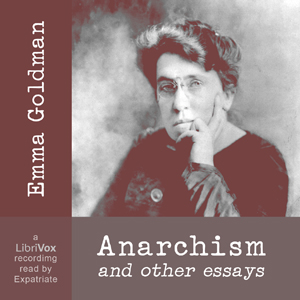
Emma Goldman, the most famous anarchist in American history, shows the whole range of her iconoclastic thought in this collection of essays. Drawing from a wealth of illustrative material, including the examples of fellow anarchists and radicals of her own acquaintance, modern martyrs, dissident playwrights, poets, and authors, etc., she delineates the main themes of her philosophy with incisiveness and evangelical passion. Included among these themes are: a definition of decentralized anarchism itself; the ambiguous morality of direct action; the curse of modern patriotism; the horrors of early twentieth-century prisons; the need for an entirely new kind of education; the relationship of legal marriage to true love; the insidious danger of Puritanical thought within feminism itself; the deadly spread of sex trafficking; the limitations or even undesirability of woman suffrage; and the extraordinary revolutionary potential of modern theatre. Sadly, none of these themes seem obsolete even to a modern reader; every one of them has direct application to twenty-first century society. - Summary by Expatriate
24 episodes
Eighteen short nonfiction works in the public domain, independently chosen by the readers. Topics include bedside books, South African cookery, Bryce canyon, Wilhelm Stekel's psychology, the Theologia Germanica, Paracelsus, John Donne, Cotton Mather, Julia Smith's translation of the Bible, Zen Buddhism, American immigrants, slavery, Joseph Crosby Lincoln, Oscar Wilde, Albert Einstein, and cats."Cats and Their Care" was edited by Liberty Hyde Bailey. "Looking Backward" was translated by Samuel Aaron Tannenbaum. "The Collector" was translated by Rosalie Gabler. "Thelogia Germanica" was translated by Susanna Winkworth. (summary by Sue Anderson)
18 episodes
This year is the 10th anniversary of our beloved LibriVox and to celebrate, readers have found and recorded 100 items with a connection to the number ten... ... dix... zehn... diez...dez... десять... There are short stories, poems, excerpts from books, bible readings and non-fiction articles.The items are mostly in English, but this year we have eighteen contributions in other languages: French, German, Russian, Spanish and Yiddish..
100 episodes

Olive Schreiner was a South African writer born in 1855 to missionary parents in the Eastern Cape. She is credited with being the first Internationally famous South African Novelist. She was an extraordinary person and was one of the earliest campaigners for women's rights, including the right to equal pay for equal work, saying: "The fact that for equal work equally well performed by a man and by a woman it is ordained that the woman on the ground of her sex alone shall receive a less recompense is the nearest approach to a willful and unqualified "wrong" in the whole relation of woman to society today". She opposed racism of all kinds whether against the Boers or Black People and she was also a pacifist and anti-war campaigner.
She was a vociferous critic of British Imperialism in South Africa and of Cecil Rhodes and his policies while prime minister of the Cape. As a result of her public support for the Boers, all her manuscripts and her house were burned by the British during the Anglo-Boer War and she was interned in a concentration camp for several years.
Her most well known book is "The Story of an African Farm" from 1883, in which her own free thinking and progressive views on equality, sexuality and marriage are explored. It became a best seller in Europe and The United States, praised by feminists for portraying a strong heroine in control of her own destiny. The book was originally published under a pseudonym and it was only eight years later with the publication of the second edition that she was able to use her own name.
In 1911 she published "Women and Labour" after having partly reconstructed it, as this was one of the manuscripts that had been destroyed. The book was immensely influential to the women's emancipation movement in England and The United States and is often referred to as the "bible" of the Women's Movement. One of the essays from that book, "Woman and War" was published as a separate booklet in 1914.
Olive Schreiner died in 1920.
- Summary by Noel Badrian
3 episodes
This is a posthumous collection of essays by Randolph Bourne. Many originally appeared in the journal "The Seven Arts," before the controversial end to its run. Also included is the unfinished manuscript of "The State," the book Bourne worked on until his tragic death in December, 1918, at the hands of the Spanish flu pandemic. In the words of the book's editor, poet James Oppenheim, "We have nothing else like this book in America. It is the only living record of the suppressed minority, and is, as so often the case, the prophecy of that minority's final triumph." - Summary by Ben Adams
10 episodes
This is a collection of essays by John Galsworthy. A multitude of subjects is covered, but the essays are connected by an artistic spirit, and they are written much more like short stories than in the classical style of essays. - Summary by Carolin
26 episodes
Written in the late 1600s by John Bunyan, author of The Pilgrim's Progress, this treatise exhorts Christians to holy living. Bunyan takes as his text Psalm 93:5, 'Holiness becometh thine house, O Lord, forever,' and from it he presents true holiness as true beauty, calling his fellow believers out of the religious hypocrisy of his era to a genuine pursuit of God. Spiritually, this work is a little-known gem from a respected religious figure, and historically it is a unique look at the Christian church and family in the seventeenth century. Whatever your reason for coming to 'A Holy Life,' it is worth the read...or listen. - Summary by Jennifer Raimundo
16 episodes
Arthur Symons talks through the histories and works of poets, playwrights, scholars and scribes. He provides both personal experience and critical wonder to the worlds of his subjects; Donne, Ibsen, Baudelaire and Emily Brontë among them. Summary by Josh Kirsh.
34 episodes
Eighteen short nonfiction works in the public domain, independently chosen by the readers. Topics include a woman in Alaska, Cuban folklore, and hunting peccaries on the Nueces; Max Planck's Quantum Theory and Newton's world view; church bells and chocolate cake; naval flag signals, rocket life-saving apparatus, and seashore plants and pebbles; also many literary and philosophical figures including Jonathan Swift, Jonathan Edwards, Johann Fichte, Joseph Butler, George Sand, Marie Corelli, G. K. Chesterton, and Hilaire Belloc. (summary by Sue Anderson)
18 episodes
We join our thoughtful author on a dreamy stroll at dusk through the English countryside, and listen to his nonchalant, slightly scattered musings on the human condition...everything from loafing about and old book collecting, to heavier topics like what is more valuable: memory or forgetfulness and can we connect back to nature, or is it too late to do so. All these ponderings, and more, are explored within.
Published in 1898, this collection of essays is Kenneth Grahame's first complied work. His wry and witty humor, which later would be celebrated in his famous novel, The Wind in the Willows, shines through here. - Summary by Mary Kay.
18 episodes
Nineteen short nonfiction works in the public domain, independently chosen by the readers. Topics include wives, widows, and women scorned--the "Baby Doe Tabor" scandal, the trials of literary marriages, and colonial women; history--Wounded Knee, the Underground Railroad, Edward Bellamy's "nationalism," and English railroads; inspiring places--the Alhambra and Squaw Rock; invention--the marine chronometer; and essays on the Constitution, the natural equality of men, old age, the consolation of reading, and on the fantastic imagination. (Summary by Sue Anderson)
The Art of Dying by August Strindberg was translated by Claud Field.
The Natural Equality of Men to be Acknowledged by Samuel Pufendorf was translated by Andrew Tooke.
19 episodes
This is a collection of short essays on literature. Various subjects are discussed, such as libraries, critics, the classics, and all sorts of things which, in the opinion of Mr. Disraeli, a writer or a reader can do right or wrong. Any bibliophile may expect to be entertained and edified by Mr. Disraeli's musings. - Summary by Carolin
140 episodes
"LibriVox is a hope, an experiment, and a question: can the net harness a bunch of volunteers to bring books in the public domain to life..."
Hugh McGuire, LibriVox's founder, August 9, 2005This year is the 11th anniversary of our beloved LibriVox. The readings in this collection celebrate that "bunch of volunteers" who make up the worldwide LibriVox community. The readings are held together by their connection to the number "eleven." The collection is multilingual. The selections, which are chosen by the readers, include fiction, nonfiction, poems, short stories, and articles.
20 episodes

Thirty three essays by more or less well-known authors of Britain, the United States, and Canada, each fronted by an introductory paragraph. Early twentieth or late nineteenth centuries. “I think I can offer you, in this parliament of philomaths [lover of learning], entertainment of the most genuine sort;…as brilliant and sincere work is being done to-day in the essay as in any period of our literature. Accordingly the pieces reprinted here are very diverse. There is the grand manner; there is foolery; there is straightforward literary criticism; there is pathos, politics, and the picturesque. But every selection is, in its own way, a work of art. And I would call the reader's attention to this: that the greater number of these essays were written not by retired æsthetes, but by practising journalists in the harness of the daily or weekly press.” The listener is alerted to the fact that some of the essays have been edited from the original, some lightly, others quite heavily. Published in 1921.
( Author's Preface and david wales)
34 episodes

I could not let these random notes of a delightful experience go forth into the world without expressing in some way my deep appreciation of the valued services rendered me in my ten years of platform work by my friends of the Lyceum Bureaus. In office and in the field they have labored strenuously, often affectionately, and always loyally, on my behalf. But for their interest some of the most cherished experiences of my life would have been beyond my reach. If sometimes in their zeal to keep me busy they have booked me in Winnipeg on Monday night, in New Orleans on Tuesday night, with little side-trips to San Diego, California, and Presque Isle, Maine, on Wednesday and Thursday, not to mention grand finales at Omaha and Key West on Friday and Saturday, I view that sequence rather as a tribute to my agility than as a matter to be unduly captious about. It is a manifestation of a confidence in my powers to overcome the limitations of time and space that I think upon with an expanding head, if not with a swelling heart, and whether this required annihilation of distance has been wholly agreeable or not it has enabled me to see more of my own country than I otherwise could have
seen, and to that extent, I hope, has made a better American of me. - Summary from the author's preface
16 episodes
This is the second volume of the Letters, Epistles LXVI-XCII. Among the personalities of the early Roman Empire there are few who offer to the readers of to-day such dramatic interest as does Lucius Annaeus Seneca, the author of the Epistles. These letters, written by Seneca towards the end of his life, are all addressed to his friend Lucilius, who, at the time when these letters were written, was a procurator in Sicily. The form of this work, as Bacon says, is a collection of essays rather than of letters. Summary paraphrased from the Introduction in Volume 1 by Suprad.
27 episodes
“We must inscribe on our banner the revolutionary watchword, ‘Abolition of the wage system’”
The Industrial Workers of the World (IWW), members of which are commonly termed "Wobblies," is an international labor union that was founded in 1905. The philosophy and tactics of the IWW are described as "revolutionary industrial unionism," with ties to both socialist and anarchist labor movements. The IWW promotes the concept of "One Big Union," and contends that all workers should be united as a social class to supplant capitalism and wage labor with industrial democracy.
Vincent St. John (1876 – 1929) was an American labor leader and prominent Wobbly, among the most influential radical labor leaders of the 20th century. - Summary by Wikipedia
2 episodes
Carl von Ossietzky war ein prominenter Journalist und Pazifist zur Zeit der Weimarer Republik, der für sein Engagement 1935 mit dem Friedensnobelpreis geehrt wurde. Während in den vorigen Teilen viele Kritiken und andere Artikel über Kunst und Wissenschaft zu finden waren, schreibt Ossietzky gegen Ende des Jahres 1921 wieder mehr über Politik. - Summary by Carolin
46 episodes
John Greenleaf Whittier was an influential American Quaker poet and ardent advocate of the abolition of slavery in the United States. He is usually listed as one of the Fireside Poets. Whittier was strongly influenced by the Scottish poet Robert Burns. In this book, John Whittier elaborates the Conflict With Slavery, Politics and Reform.
10 episodes
Twenty short nonfiction works in the public domain, independently chosen by the readers. Topics include meteor showers, smallpox inoculation, telegraphy, fear of death, church bell change-ringing , painting as a pastime, prejudice against Jews from Mark Twain's perspective, the view from Braddock Heights, Maryland, philosophical reflections by Saint Bonaventure, Paracelsus, and Friedrich Jacobi, letters written by Thomas Jefferson and James Monroe, and eulogies to Alexander Hamilton and John Keats.The Degrees of Ascension to God by Saint Bonaventure was translated by Thomas Davidson.
20 episodes
This is a frank eyewitness description of the suffering, starvation in particular, that was widely experienced in Central and Eastern Europe in the aftermath of "The Great War". “It is not stating matters too strongly to say that…peace had caused at least as much misery as the four years’ fury of embattled armies.” It is a powerful political and anti-war statement with scant mention of any battle. – Lee Smalley
20 episodes
Arthur Bingham Walkley was an exceedingly popular critic, working as a drama critic at The Times alone for no less than 26 years, and writing for several other newspapers and privately besides that. This book of pastiches was completed after he already had more than two decades of work as a theatre critic under his belt, and it draws some brilliant characterisations. Among the literary and historical figures found in the different pastiches are such illustrious figures as Aristotle and Shakespeare, but also more modern phenomena as movies are discussed, along with politicians and other famous persons of the time. - Summary by Carolin
55 episodes
A collection of essays on 19th century novelists, both famous ones and those largely forgotten now. Among the writers presented most wrote in English, but three foreign authors are also discussed. Phelps taught a course on novels at a university and he added to those biographical essays some of his ideas about the importance of novels in the process of teaching about literature. (Summary by Piotr Nater)
15 episodes
A. A. Milne (18 January 1882 – 31 January 1956) was an English author, best known for his books about the teddy bear Winnie-the-Pooh and for various poems. 'If I May' is a collection of short essays on desultory subjects that first appeared in The Sphere, The Outlook, The Daily News, The Sunday Express (London) and Vanity Fair (New York). These essays display Milne's vivid imagination and literary ability to elaborate on almost any subject in an engaging manner. Milne's literary style and humor - often self deprecatory - endear him to modern readers as well - Summary by Wikipedia, S K
41 episodes
Eighteen short nonfiction works in the public domain, independently chosen by the readers. Topics include philosophy and thought -- Plato, Aristotle, Leonhard Euler, Henri Amiel, and the French Rights of Man; adventure and mystery -- the ascent of Aconcagua and the mystery ship Mary Celeste; science -- a new comet and lichen dyes; portraits of the seasons by Lucy Maud Montgomery: biographies of Charles Dickens and Clara and Robert Schuman; a history of the Transcendental utopia Fruitlands by Louisa May Alcott, and an essay on reading by Isaac Disraeli. summary by Sue Anderson
18 episodes
People learn from other people, and races have forever learned from other races. Herein we are treated to an in-depth understanding of categorized social characteristics of the Native American peoples, primarily those of the western U.S. as they existed at the time of book publication (1908). 'In dealing with [the Native Americans] as a race, a people, therefore, I do as I would with my own race, I take what to me seem to be racial characteristics, or in other words, the things that are manifested in the lives of the best men and women, and which seem to represent their habitual aims, ambitions, and desires.' - Summary by Roger Melin & book foreword
29 episodes
This is a collection of 32 highly diverting essays of English author Richard Middleton. Although Middleton is now best remembered for his ghost stories, he was also an accomplished poet and essayist. The musings collected in this volume cover a variety of topics, including poetry, art, and politics. - Summary by Carolin
32 episodes
This is another of the popular books that Lafcadio Hearn wrote on various Japanese subjects. The first part "Stories From Strange Books" is a collection of Japanese tales about ghosts and strange occurrences. In the second part "Japanese Studies", Hearn discourses on cicadae, girl's names, and Japanese songs. The third part "Fantasies" are stories and essays on various topics written by Hearn himself. - Summary by Availle
DPLs for this project were ChuckW and Isana.
19 episodes
"I am of the company of book men who read simply for the love of it," confesses E. Walter Walters, in this gently written tome. Walters documents his habit of "book fishing--" seeking and finding quality volumes in the discount binds at his booksellers, and as a connoisseur of wine might match varieties with courses, he matches his books with the contexts in which he reads them--in the garden, in the bedroom, with friends. He also provides a list of his favorite authors (mostly 19th century United Kingdom) and favorite books, as well as favorite characters from the books he has read, not in a way to impose his choices on other readers, but to share his own personal experiences. (summary by Dr. P. Gould)
15 episodes
George William Curtis was a writer and public speaker. He was editor of Harper's Weekly and one of the founders of the American Republican party, and served Ulysses S. Grant; although he split from the party in the 1880s over the choice of presidential candidate. He was an original member of the New York Board of Education. This anthology of essays is the first of a three volume work, showing his broad knowledge and interest. - Summary by Lynne Thompson
27 episodes
This is a diverse collection of essays by English writer Max Beerbohm, whose circle included such notables as Oscar Wilde, George Bernard Shaw, Ezra Pound, and Somerset Maugham. Much of Beerbohm's work was humorous, including parodies of various aspects of the upper class life into which he was born.
Some of these pieces are humorous, some philosophical, and some even sad. They include, for instance: a frankly self-critical piece on the pomposity and self-importance of his early literary ambitions; a half-eager, half-repining essay on a missing and uncompleted portrait of the great German writer, Johann Wolfgang von Goethe; and a funny, but politically critical essay on "the servant question." (Summary by Kirsten Wever.)
20 episodes
Alice Meynell was an English essayist, critic, and poet who was also a leading suffragist, serving as vice-president of the Women Writers' Suffrage League, She and her husband Wilfrid Meynell were active in publishing and editing literary works including helping to launch the first works of Francis Thompson, author of "Hound of Heaven." The Meynell's later converted to Roman Catholicism. These essays are very evocative for anyone who has, or wants to visit London, capturing the atmosphere of the late nineteenth century. - Summary by Larry Wilson
10 episodes
Diese Sammlung umfasst 10 deutschsprachige Prosa-Texte verschiedener Genres.
"Im Gerichtssaal" übersetzt von Marie Franzos (1870–1941)
Erstes Kapitel von "Der Spieler" übersetzt von August Scholz (1857–1923)
Eine Liste weiterer kurzer Aufnahmen (Erzählungen, Gedichte, Märchen, Essays) in anderen LibriVox Sammlungen gibt es hier.
10 episodes




